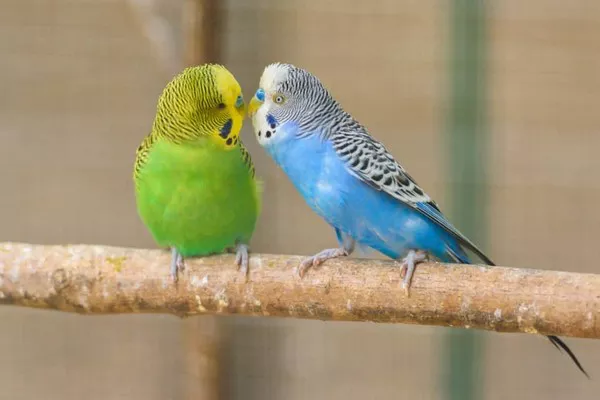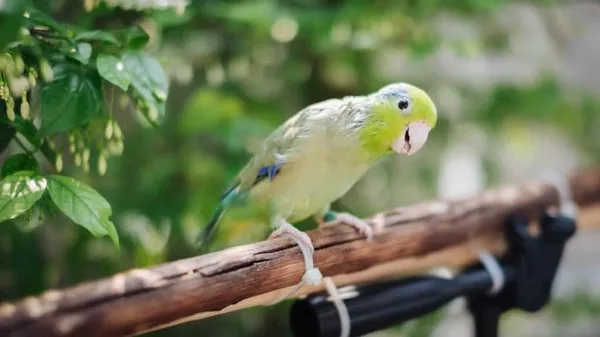Cockatiels are beloved pet birds known for their charming personalities, beautiful plumage, and playful nature. As popular avian companions, understanding the expected lifespan of cockatiels is crucial for providing proper care and ensuring a long and fulfilling life for these feathered friends. In this comprehensive article, we will explore the factors that influence the lifespan of cockatiels, their care requirements, and tips to promote their health and well-being as cherished members of the family.
The Average Lifespan of Cockatiels:
Cockatiels are relatively long-lived parrots when kept as pets. On average, these delightful birds can live between 15 to 25 years in captivity. However, with excellent care and a healthy lifestyle, some cockatiels have been known to reach 30 years or more.
Genetic Factors and Lifespan:
Genetics play a significant role in determining the lifespan of cockatiels. Birds from reputable breeders with a strong genetic background are more likely to live longer and healthier lives. Responsible breeding practices can contribute to reducing the risk of hereditary health issues, ensuring that the cockatiels have the best chance of a full and happy life.
Nutrition and Diet:
Proper nutrition is crucial for the well-being and longevity of cockatiels. A balanced diet should consist of high-quality pellets, supplemented with a variety of fresh fruits, vegetables, and occasional seeds as treats. Avoid feeding your cockatiel foods high in fat, sugar, or salt, as these can lead to obesity and various health problems.
Exercise and Mental Stimulation:
Cockatiels are active and curious birds that require regular exercise and mental stimulation. Providing a spacious cage with plenty of toys, perches, and interactive activities is essential to prevent boredom and promote physical and mental well-being. Allow your cockatiel supervised out-of-cage time to fly and explore their environment safely.
Veterinary Care:
Regular veterinary check-ups are essential in monitoring your cockatiel’s health. Annual wellness exams help detect potential health issues early on, allowing for timely interventions and treatments. Finding an experienced avian veterinarian familiar with cockatiels’ specific needs is crucial for providing the best care.
Social Interaction and Bonding:
Cockatiels are highly social and intelligent birds that require regular interaction with their human caregivers. Spending quality time with your cockatiel through talking, training, and positive reinforcement strengthens the bond and reduces stress. A well-socialized cockatiel is more likely to lead a happy and healthy life.
Environment and Cage Setup:
Creating a safe and enriching environment for your cockatiel is vital for their well-being. A spacious cage with appropriate perches, toys, and a variety of activities to engage in helps prevent behavioral problems. Ensure the cage is placed in a draft-free area away from direct sunlight and potential hazards.
Grooming and Hygiene:
Regular grooming, including nail and wing trimming when necessary, is essential for your cockatiel’s comfort and health. Provide regular bathing opportunities, either through misting or shallow water dishes, to help keep their feathers clean and in good condition.
Avoiding Harmful Substances:
Toxic substances, including tobacco smoke, household chemicals, and non-bird-safe plants, can be harmful to cockatiels. Create a safe environment to prevent accidental exposure and provide fresh, clean water daily.
Recognizing Behavioral Changes:
Cockatiels are sensitive birds, and changes in behavior may indicate underlying health issues or emotional distress. Be attentive and responsive to any unusual behavior, and seek veterinary attention if needed.
Conclusion:
Cockatiels are wonderful and affectionate companions that can bring joy and companionship to their owners’ lives for many years. Providing them with a balanced diet, regular exercise, mental stimulation, social interaction, and proper veterinary care can significantly impact their lifespan and overall well-being. Building a strong bond with your cockatiel through love and attention fosters a harmonious relationship. By creating a safe and nurturing environment, you can ensure your feathered friend enjoys a happy and healthy life for decades to come, enriching your home as a cherished member of the family.
Related Topics:


























